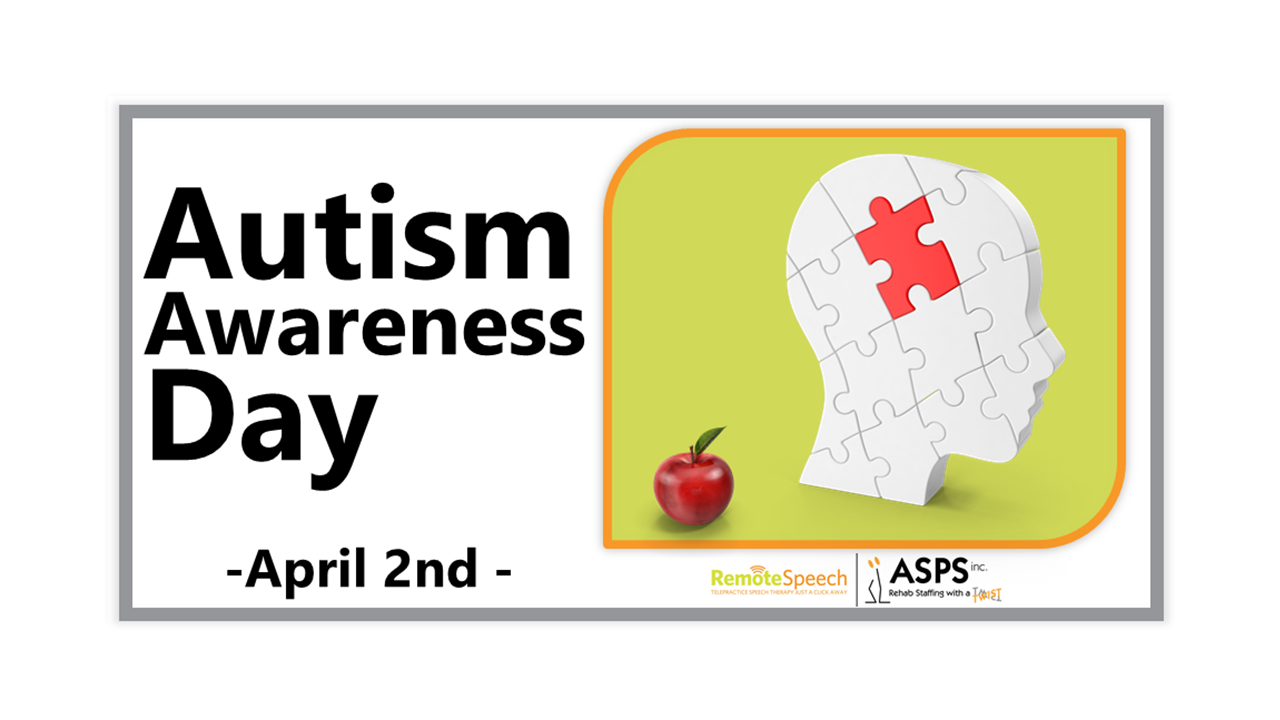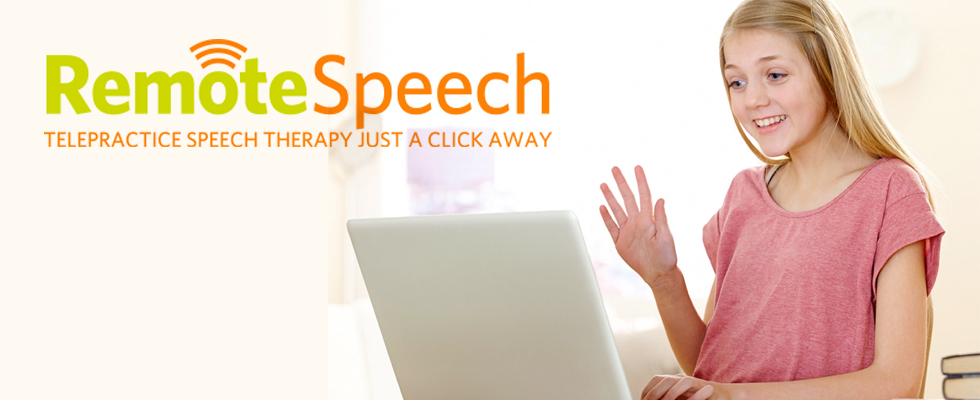
28
Mar
Autism Awareness Day April 2
Every April is World Autism Month, beginning with the United Nations-sanctioned World Autism Awareness Day on April 2. This year marks the 15th annual World Autism Awareness Day.
Autism Awareness Month in April aims to celebrate and promote acceptance for the condition that occurs in one in every 54 children as of 2020 in the United States. Autism, a complex developmental condition affecting the patient’s ability to interact, communicate, and progress, has not one but many subtypes. First held in the year 1972 by the Autism Society, Autism Awareness Month emphasizes the need for public awareness to promote acceptance, celebrate differences, and be more inclusive toward autistic individuals around us.
It is difficult to overestimate the impact that Autism has on the world. Most people know and love someone on the spectrum. Here are some of the facts:
 The response to the COVID-19 virus is unprecedented. Because of our unique role in children’s K-12 education, we feel a responsibility to do what we can to assist schools, therapists, and students with this transition to online learning and seclusion. To ensure that our clients remain engaged and supported, our therapists will be providing complimentary “Support Sessions” to the country’s youth. We will also be assisting schools by training therapists for remote therapy.
Click here to schedule a complimentary consultation with an Executive Member of our Team.
Abington Speech Pathology and RemoteSpeech.com are uniquely prepared to provide assistance for parents of children with Speech-Language Pathology.
About Abington Speech Pathology
Abington Speech Pathology is managed and owned by a licensed speech-langauge pathologist. All of the company’s directors are licensed and remain clinical to better direct and support both the company’s clients and the clinical staff.
Through the years the company’s client base continues to grow and remains loyal. ASPS, INC has expanded its services to include Physical therapy, Occupational therapy, Teachers of the visually and hearing impaired, and School psychologists. ASPS, INC. now operates two offices. The corporate office is in eastern PA and services all 5 major counties surrounding the metro Philadelphia area. The Southern CA office services the Los Angeles and Orange County metro areas and at this point only offers speech pathology services to all settings.
The company offers the professional staff a lending library of materials. In PA, there are 2-3 continuing educational seminars to assist on clinical growth and state and national mandated continuing education requirements.
About RemoteSpeech.com
RemoteSpeech is a subsidiary of Abington Speech Pathology Services, a multi-faceted Rehab company that has provided Speech Staffing and support throughout the country for more than 20 years. RemoteSpeech combines crystal clear voice with the sharpest video to provide next-generation video calling and high-definition video delivery.
Prior to the Covid 19 pandemic, Orna Kempler-Azulay, President of RemoteSpeech, says the demand for speech-language therapists was outpacing the supply in some cities. RemoteSpeech is here to meet the demand. With its live, face-to-face interaction, RemoteSpeech is not the next best thing to being there in person — it’s just as good, and, in some cases, even better. With advanced state-of-the-art games, activities, and interactive screen sharing, students and adults will actually look forward to their therapy sessions.
The response to the COVID-19 virus is unprecedented. Because of our unique role in children’s K-12 education, we feel a responsibility to do what we can to assist schools, therapists, and students with this transition to online learning and seclusion. To ensure that our clients remain engaged and supported, our therapists will be providing complimentary “Support Sessions” to the country’s youth. We will also be assisting schools by training therapists for remote therapy.
Click here to schedule a complimentary consultation with an Executive Member of our Team.
Abington Speech Pathology and RemoteSpeech.com are uniquely prepared to provide assistance for parents of children with Speech-Language Pathology.
About Abington Speech Pathology
Abington Speech Pathology is managed and owned by a licensed speech-langauge pathologist. All of the company’s directors are licensed and remain clinical to better direct and support both the company’s clients and the clinical staff.
Through the years the company’s client base continues to grow and remains loyal. ASPS, INC has expanded its services to include Physical therapy, Occupational therapy, Teachers of the visually and hearing impaired, and School psychologists. ASPS, INC. now operates two offices. The corporate office is in eastern PA and services all 5 major counties surrounding the metro Philadelphia area. The Southern CA office services the Los Angeles and Orange County metro areas and at this point only offers speech pathology services to all settings.
The company offers the professional staff a lending library of materials. In PA, there are 2-3 continuing educational seminars to assist on clinical growth and state and national mandated continuing education requirements.
About RemoteSpeech.com
RemoteSpeech is a subsidiary of Abington Speech Pathology Services, a multi-faceted Rehab company that has provided Speech Staffing and support throughout the country for more than 20 years. RemoteSpeech combines crystal clear voice with the sharpest video to provide next-generation video calling and high-definition video delivery.
Prior to the Covid 19 pandemic, Orna Kempler-Azulay, President of RemoteSpeech, says the demand for speech-language therapists was outpacing the supply in some cities. RemoteSpeech is here to meet the demand. With its live, face-to-face interaction, RemoteSpeech is not the next best thing to being there in person — it’s just as good, and, in some cases, even better. With advanced state-of-the-art games, activities, and interactive screen sharing, students and adults will actually look forward to their therapy sessions.
- Autism is the fastest-growing developmental disorder There are approximately 70 million recognized cases of autism worldwide. Besides genetic mutation, environmental triggers such as exposure to heavy metals, antibiotics, chemicals, drugs, and even extensive TV viewing can cause autism.
- Autism has to be accepted with love The increasing rates of autism in the United States require that the general public is educated on the disorder to inspire change and support. In combination with education, we must employ the notion of acceptance and understanding to help autistic individuals and families to better navigate the world.
- Early intervention helps to deal with autism If we can screen for autism at an early age by being aware of its signs and symptoms, we can improve the quality of life for autistic individuals, their families, and loved ones.
“In 2008, the Convention on the Rights of Persons with Disabilities entered into force, reaffirming the fundamental principle of universal human rights for all. Its purpose is to promote, protect and ensure the full and equal enjoyment of all human rights and fundamental freedoms by all persons with disabilities, and to promote respect for their inherent dignity. It is a vital tool to foster an inclusive and caring society for all and to ensure that all children and adults with autism can lead full and meaningful lives.”It is with this sentiment, that what is known as “Autism Awareness Month’ is now being referred to as “Autism Acceptance Month” as described by leading institutions such as The American Speech-Language and Hearing Association (ASHA). There are many ways for families, therapists, educators, and administrators to participate in Autism Awareness Month. We can take small (though powerful) steps, such as using the hashtags #CelebrateDifferences, #KindnessCounts, and #WorldAutismMonth when we post anything relevant on social media throughout the month of April. Or, we can take more proactive roles through education, advocacy, and research. In this article, we have drafted a list of the leading organizations, industry leaders, and change-makers known in the world of Autism, by providing our readers with an introduction to the organization, and ways for you to work directly with each organization to inspire change. Let’s begin!
1. THE ORGANIZATION FOR AUTISM RESEARCH (OAR).
The Organization for Autism Research (OAR) is an organization founded and led by parents and grandparents of children with autism, who serve as the Board of Directors providing leadership, life experience, and heart. “If our parent leaders are the heart, our Scientific Council, 16 remarkable and equally dedicated autism professionals are the brain when it comes to our mission and research direction. They are not simply a list of names on letterhead; they are a “roll up your sleeves” team that we call on throughout the year to share their professional expertise and review the merits of all research grant applications.” Accomplishments include:-
- Funded more than $4 million in autism research in the form of pilot studies ($4,037,251) and graduate research grants ($305,793)
- Awarded $1,068,000 in scholarships to 356 persons with autism attending college or vocational-technical schools after high school
- Published ten guides in the Life Journey through Autism series: A Parent’s Guide to Research, An Educator’s Guide to Autism, An Educator’s Guide to Asperger Syndrome, A Guide for Transition to Adulthood, A Parent’s Guide to Assessment, A Guide for Military Families, Navigating the Special Education System, and A Guide to Safety
- Created Operation Autism, a website that provides military families impacted by autism with information 24/7
- Introduced the “Autism in the School House” program built around the Kit for Kids Peer Education Initiative and Understanding Autism, a “Curriculum-in-a-Box” containing resource guides and a curriculum DVD that gives middle and high school teachers a basic understanding of autism and best practices for teaching students with autism
- Taught more than 135,000 students in grades K-8 about their peers with autism through the Kit for Kids Peer Education Initiative
- Created and delivered three new resources related to siblings of individuals with autism, one for parents, one for teen siblings, and a fun workbook for younger siblings
- Started the “Autism Sibling Support” initiative to help typically-developing children and teens develop positive relationships with their brothers and sisters on the spectrum
- Created Hire Autism, a unique jobs portal that allows adults with autism to meet prospective employers in an autism-friendly online meeting space
- Launched Hire Autism, an adult employment initiative that has helped 56 individuals with autism find jobs in the test program in Northern Virginia
- Created Finding Your Way: A College Guide for Self-Advocates along with its microsite, College Central
- Created Sex Ed. for Self-Advocates, an online sexuality and sex education resource written specifically for people on the autism spectrum age 15 and up
- Launched the Autism Education Grant to expand peer awareness and acceptance of autism
Check out their calendar of events with virtual conferences throughout the month of April:
2. AUTISM SPEAKS.
Autism Speaks is dedicated to promoting solutions, across the spectrum and throughout the life span, for the needs of individuals with autism and their families. We do this through advocacy and support; increasing understanding and acceptance of people with autism, and advancing research into causes and better interventions for autism spectrum disorder and related conditions. [embed]https://youtu.be/ckuqPTGbk38[/embed]Throughout the month, we focus on sharing stories and providing opportunities to increase understanding and acceptance of people with autism, fostering worldwide support. This year, we are committed to creating a world where all people with autism can reach their full potential.Supporters can participate in World Autism Month by:
- Taking the pledge to create a world where all people with autism can reach their full potential by increasing understanding and acceptance. You’ll receive free information, resources, and tools to engage and advocate in your community and learn the impact of your support through Autism Speaks.
- Join our 2.8 million social followers and help foster understanding and acceptance by sharing the diverse stories of people on the spectrum or telling your own. Submit your story for our social media pages here.
- Invite your colleagues, classroom, and friends to join our Kindness Campaign and encourage acceptance, understanding, and inclusion with daily acts of kindness at school, work, or in your community. Together, we can create a world where all people with autism can reach their full potential.
- Make a meaningful, lasting impact on people with autism with your gift. It’s one of the easiest and best ways to show your support. Donate today!
- Learn about all the ways you can fundraise on social media.
- Joined by the international community, hundreds of thousands of landmarks, buildings, homes, and communities around the world come together on April 2, World Autism Awareness Day, to Light It Up Blue in recognition of people with autism and those who love and support them.
Learn More about AutismSpeaks’ plans for Autism Awareness Month here!
3. THE AUTISM SOCIETY.
Every April, The Autism Society works to build an inclusive community where autistic individuals are embraced and supported to achieve the highest quality of life possible. The Autism Society was founded in 1965 by Bernard Rimland and remains one of the few grassroots organizations in the autistic community. Driven by the fact that autism is the fastest-growing developmental disability in the world, the Autism Society hosted one of its first nationwide efforts of an awareness campaign called National Autistic Children’s Week in 1972, which subsequently evolved into the Autism Awareness Month earmarked in April. The Autism Society deeply understands the need to foster awareness and acceptance to ignite change and a healthier lifestyle through improved opportunities for people with autism. It works every day to improve the lives of affected individuals and families. The organization caters to more than 600,000 people living under the “autism onslaught,” using tools like community partnerships with organizations, digital and print resources, along with events and referrals to spark empathy and inclusivity in the general public. Besides educating masses for better systems-wide change and acceptance, their affiliate program stretches across more than 75 networks and advocates for exclusive services for the autistic community. With the autism diagnosis rate increasing fast, we take these 30 days to celebrate the differences of-, learn more about-, and empower autistic individuals. HOW TO OBSERVE AUTISM AWARENESS MONTH- Find out and participate in local groups activities
- Read autism books to your children
- Donate to Autism Awareness Organizations
Be informed. You’ll find excellent resources at the Autism Society’s Autism Awareness Month website—including infographics to share. And you’ll find the Autism Society’s resources on Coronavirus with several toolkits organized by topic.
4. ON THE SPECTRUM FOUNDATION (for Adults).
On the Spectrum Foundation is a 501(c)3 nonprofit foundation dedicated to the identification, diagnosis, and advocacy of adults who are on the spectrum, as well as those with accompanying conditions such as Dyslexia."Our goal is to empower adults on the ASD spectrum and increase awareness of how Asperger’s many strengths and talents improve society for everybody. We do this through hosting annual events, public speaking, funding research, and the creation of events and productions that are designed to inspire."THE PROBLEM
Asperger’s and Autism in adults are both underdiagnosed and misunderstood. There are few if any opportunities available to these members of our community.
Learn more about this wonderful organization for adults, here!
5. ASHA:
The American Speech-Language-Hearing Association (ASHA) is a leader in the world of neurodiversity. Its mission is: “Making effective communication, a human right, accessible and achievable for all.” The “Leader” is an online publication that is owned and operated by ASHA, tracking the leading current events and providing families, educators, therapists, and administrators with an extensive library for news and reporting. The Leader’s April print issue focuses on a neurodiversity perspective. Online-exclusive Leader Live articles and ASHA Voices podcast episodes also explore how SLPs help autistic people self-identify and promote a positive self-concept. Here are 12 Leader Live articles and ASHA Voices podcasts on working with people on the autism spectrum. Children with language disorders find social interactions challenging in the best of times. So physical distancing can potentially aggravate their communication issues. Try sharing some or all of these suggestions with clients and families to help children with language disorders interact socially while maintaining safe physical distance: When you talk about autism, how do you decide which language to use? On this episode, we look at the difference, history, and context that surround person-first and identity-first language. We’ll talk to ASHA members and autistic SLPs about how they approach the language they choose to use. Plus, author Barry Prizant returns to the podcast to share how he’s seen the conversation around this language evolve throughout his career.Read the remaining 10 articles here!
6. PRESENCELEARNING
Learn more about how the autistic brain works: PresenceLearning hosted a webinar with leading autism expert Dr. Temple Grandin to give special educators and administrators a deeper understanding of neurodiversity and how they can help students reach their fullest potential. You can watch a recording of the webinar here, read a summary of the webinar’s Q&A portion here, and download a free ebook, “5 Tips for Working with Children with Autism,” here
 The response to the COVID-19 virus is unprecedented. Because of our unique role in children’s K-12 education, we feel a responsibility to do what we can to assist schools, therapists, and students with this transition to online learning and seclusion. To ensure that our clients remain engaged and supported, our therapists will be providing complimentary “Support Sessions” to the country’s youth. We will also be assisting schools by training therapists for remote therapy.
Click here to schedule a complimentary consultation with an Executive Member of our Team.
Abington Speech Pathology and RemoteSpeech.com are uniquely prepared to provide assistance for parents of children with Speech-Language Pathology.
About Abington Speech Pathology
Abington Speech Pathology is managed and owned by a licensed speech-langauge pathologist. All of the company’s directors are licensed and remain clinical to better direct and support both the company’s clients and the clinical staff.
Through the years the company’s client base continues to grow and remains loyal. ASPS, INC has expanded its services to include Physical therapy, Occupational therapy, Teachers of the visually and hearing impaired, and School psychologists. ASPS, INC. now operates two offices. The corporate office is in eastern PA and services all 5 major counties surrounding the metro Philadelphia area. The Southern CA office services the Los Angeles and Orange County metro areas and at this point only offers speech pathology services to all settings.
The company offers the professional staff a lending library of materials. In PA, there are 2-3 continuing educational seminars to assist on clinical growth and state and national mandated continuing education requirements.
About RemoteSpeech.com
RemoteSpeech is a subsidiary of Abington Speech Pathology Services, a multi-faceted Rehab company that has provided Speech Staffing and support throughout the country for more than 20 years. RemoteSpeech combines crystal clear voice with the sharpest video to provide next-generation video calling and high-definition video delivery.
Prior to the Covid 19 pandemic, Orna Kempler-Azulay, President of RemoteSpeech, says the demand for speech-language therapists was outpacing the supply in some cities. RemoteSpeech is here to meet the demand. With its live, face-to-face interaction, RemoteSpeech is not the next best thing to being there in person — it’s just as good, and, in some cases, even better. With advanced state-of-the-art games, activities, and interactive screen sharing, students and adults will actually look forward to their therapy sessions.
The response to the COVID-19 virus is unprecedented. Because of our unique role in children’s K-12 education, we feel a responsibility to do what we can to assist schools, therapists, and students with this transition to online learning and seclusion. To ensure that our clients remain engaged and supported, our therapists will be providing complimentary “Support Sessions” to the country’s youth. We will also be assisting schools by training therapists for remote therapy.
Click here to schedule a complimentary consultation with an Executive Member of our Team.
Abington Speech Pathology and RemoteSpeech.com are uniquely prepared to provide assistance for parents of children with Speech-Language Pathology.
About Abington Speech Pathology
Abington Speech Pathology is managed and owned by a licensed speech-langauge pathologist. All of the company’s directors are licensed and remain clinical to better direct and support both the company’s clients and the clinical staff.
Through the years the company’s client base continues to grow and remains loyal. ASPS, INC has expanded its services to include Physical therapy, Occupational therapy, Teachers of the visually and hearing impaired, and School psychologists. ASPS, INC. now operates two offices. The corporate office is in eastern PA and services all 5 major counties surrounding the metro Philadelphia area. The Southern CA office services the Los Angeles and Orange County metro areas and at this point only offers speech pathology services to all settings.
The company offers the professional staff a lending library of materials. In PA, there are 2-3 continuing educational seminars to assist on clinical growth and state and national mandated continuing education requirements.
About RemoteSpeech.com
RemoteSpeech is a subsidiary of Abington Speech Pathology Services, a multi-faceted Rehab company that has provided Speech Staffing and support throughout the country for more than 20 years. RemoteSpeech combines crystal clear voice with the sharpest video to provide next-generation video calling and high-definition video delivery.
Prior to the Covid 19 pandemic, Orna Kempler-Azulay, President of RemoteSpeech, says the demand for speech-language therapists was outpacing the supply in some cities. RemoteSpeech is here to meet the demand. With its live, face-to-face interaction, RemoteSpeech is not the next best thing to being there in person — it’s just as good, and, in some cases, even better. With advanced state-of-the-art games, activities, and interactive screen sharing, students and adults will actually look forward to their therapy sessions.





